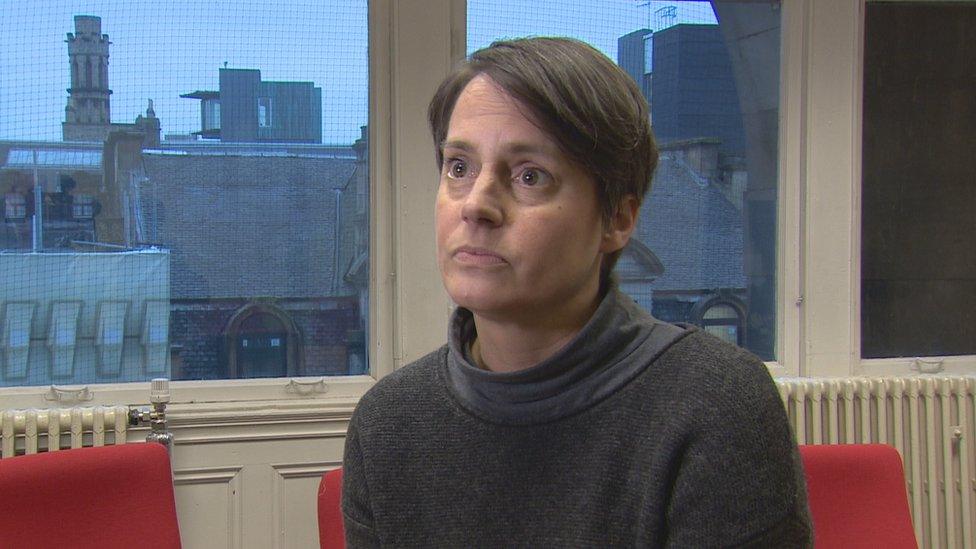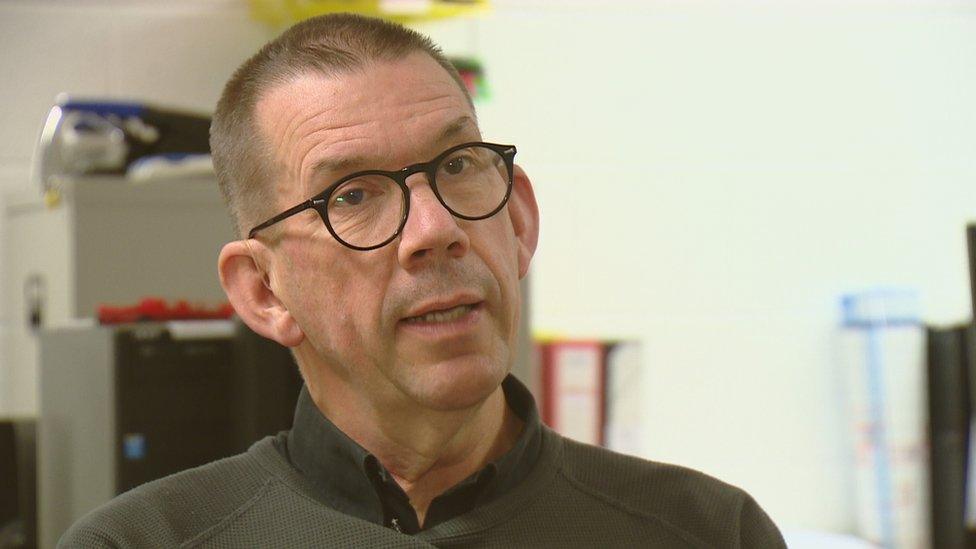Criminal record 'tick box' condemned
- Published

Dr Beth Weaver said asking about convictions on application forms means many companies are missing out on the best candidates
Employers should stop asking about criminal convictions on job application forms, according to an academic study.
Dr Beth Weaver of Strathclyde University found that criminal record declarations do little to predict the risk of someone re-offending.
But they often lead to applicants with previous convictions being dismissed out of hand for no good reason.
She said it would be better for employers to ask about convictions at a later stage in the recruitment process.
Her findings have been published in a paper for the Scottish Centre for Crime and Justice, external, and have been welcomed by supporters of the "ban the box" campaign, who want employers to drop criminal record declarations from job application forms.

Pete White: 'Tick box doesn't give people a chance'

Former architect Pete White was jailed for 12 months in 2005 for embezzling £60,000. He is now chief executive of Positive Prison? Positive Futures - an organisation which campaigns for people with convictions to be appreciated as citizens.
"The difficulty I have is being seen as an ex-offender rather than a person. I think once somebody has done their time and completed their sentence they can be seen as somebody with a conviction rather than an ex-offender or an ex-prisoner.
"A tick box is no way to deal with complex issues, and to deal with an individual, and their personal development.
"If somebody who has served their sentence finds work, or is given an opportunity to take up a job, they are far less likely to re-offend.
"I think the tick box puts people off because it doesn't give them the chance to explain how they've moved on since they were convicted."

More than 115 employers across the UK have already agreed to do so - including the Civil Service, with then Prime Minister David Cameron announcing in 2016, external that it would not ask for details of criminal convictions at the initial recruitment stage, unless the job had specific security requirements.
About 38% of Scottish men and 9% of women are said to have at least one criminal conviction - meaning a huge number of potential employees are affected.
What does Dr Weaver say?
In her paper, Dr Weaver said research has suggested that someone with a criminal convictions is no more likely to reoffend about seven or 10 years later than someone that has no convictions.
But she said employers remain less likely to hire somebody with a criminal record even if their risk is no greater than somebody who has never offended.
The criminology expert told BBC Scotland: "One of the main challenges is that people have to declare their criminal record before they even get to interview at the job application stage.

Dr Weaver believes a potential employee should not be defined by an old conviction
"A person is not just the sum of a criminal conviction that they may have acquired at the age of 15 - they may have a whole range of different contributions they could possibly make.
"But that is being forestalled at the first hurdle, and this is why the ban the box campaign is so important."
Dr Weaver said there was no justification for application forms to continue to have a box for criminal record disclosures.
She added: "We refuse as a society to believe that people can change - we are a risk averse society and we think we are protecting ourselves if we have information as to whether somebody has a criminal record or not.
"But this is not based on the evidence from research."
What do companies who have already "banned the box" say?
Virgin Trains has been actively recruiting people with convictions for five years, and has banned the criminal record declaration form on job application forms.
Its communications manager in Scotland, Damian Henderson, said the company had done so because "there are better ways to talk to people about their offending background rather than just simply putting them off with a ticked box exercise at the start of the application process."
He said: "We want to look beyond someone's conviction see what they've got to offer. Our experience has been that we've attracted really good people with criminal convictions by looking to the potential that they have.
"If they've got an unspent conviction we'll have a conversation about where they are in their rehabilitation journey so we can better understand where they've come from, what issues have led them to get to where they are and how they've come about rehabilitating themselves.
"But that's quite a deep conversation. You don't get that information from simply having a tick box. All you really do with that is put people off."
However, the company stresses that it does not employ anyone with convictions for the most serious offences, such as murder, violence and sexual offenses.